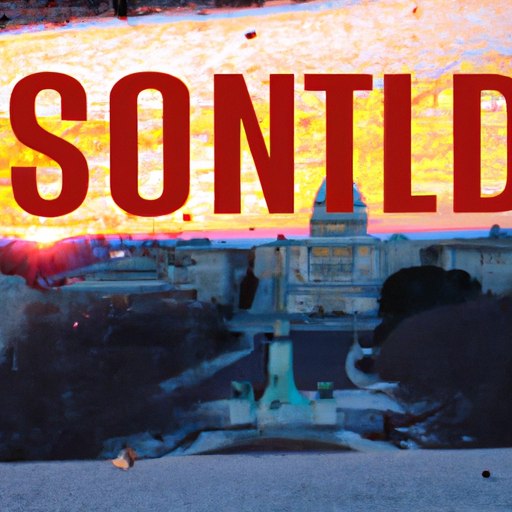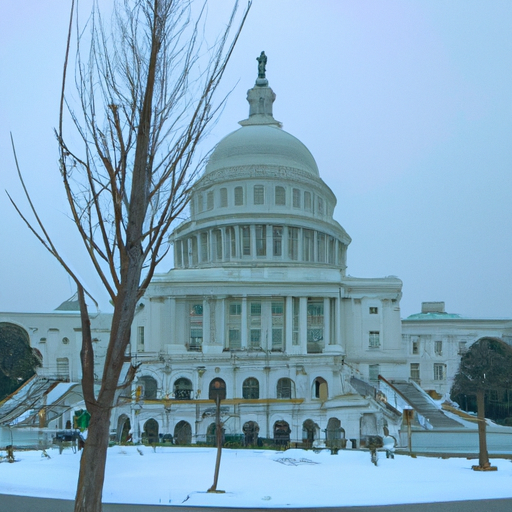
Economic Consequences of the Federal Government Shutdown on U.S. Travel Industry
The recent federal government shutdown in the United States has had a significant impact on various sectors of the economy, including the travel industry. With the closure of national parks, museums, and other tourist attractions, as well as the furloughing of federal employees, the travel economy has taken a hit. In fact, it is estimated that the U.S. travel industry is losing $140 million every day as a result of the shutdown.
One of the major consequences of the government shutdown on the travel industry is the closure of national parks. These parks attract millions of visitors each year, who spend money on accommodations, food, and other travel-related expenses. With the shutdown, these parks have been closed to the public, resulting in a loss of revenue for nearby businesses that rely on tourism. Hotels, restaurants, and souvenir shops are all feeling the impact of the shutdown, as tourists are forced to cancel their plans or find alternative destinations.
In addition to the closure of national parks, the shutdown has also affected the operations of museums and other cultural institutions. Many of these institutions rely on federal funding to stay open and maintain their collections. With the government shutdown, these institutions have been forced to close their doors, resulting in a loss of revenue and potential layoffs for employees. This not only affects the local economy but also deprives visitors of the opportunity to experience and learn from these cultural treasures.
Furthermore, the furloughing of federal employees has had a direct impact on the travel industry. Many federal employees are responsible for overseeing and managing various aspects of the travel industry, such as airport security and air traffic control. With these employees furloughed, there have been reports of longer wait times at airports and delays in flights. This not only inconveniences travelers but also has a ripple effect on the entire travel industry, as delays and cancellations can lead to lost revenue for airlines, hotels, and other travel-related businesses.
The impact of the government shutdown on the travel industry is not limited to domestic travel. International travelers visiting the United States are also feeling the effects of the shutdown. With the closure of national parks and museums, as well as the potential for delays and cancellations, many international tourists are reconsidering their travel plans. This not only affects the U.S. travel economy but also has broader implications for the country’s image as a tourist destination.
In conclusion, the federal government shutdown has had a significant impact on the U.S. travel economy. The closure of national parks, museums, and other tourist attractions, as well as the furloughing of federal employees, has resulted in a daily loss of $140 million. The travel industry, including hotels, restaurants, and other businesses, is feeling the financial strain of the shutdown. Additionally, the closure of cultural institutions and the potential for delays and cancellations have affected both domestic and international travelers. It is clear that the consequences of the government shutdown on the travel industry are far-reaching and will have long-lasting effects on the economy.
Analyzing the Financial Toll of the Federal Government Shutdown on U.S. Tourism

The Impact of Federal Government Shutdown on U.S. Travel Economy: A Daily Loss of $140 Million
The recent federal government shutdown has had a significant impact on various sectors of the U.S. economy, and one industry that has been hit particularly hard is the tourism sector. With national parks closed, museums shuttered, and government employees furloughed, the effects of the shutdown on U.S. tourism have been devastating. In fact, it is estimated that the U.S. travel economy is losing a staggering $140 million every day.
The closure of national parks and monuments across the country has been a major blow to the tourism industry. These iconic landmarks are major attractions for both domestic and international tourists, and their closure has resulted in a significant decline in visitor numbers. Without access to these popular sites, tourists are choosing to postpone or cancel their trips altogether, leading to a sharp decline in revenue for hotels, restaurants, and other businesses that rely on tourism.
In addition to the closure of national parks, the shutdown has also affected the operations of museums and cultural institutions. Many of these institutions rely on federal funding to stay open and maintain their collections. With the government shutdown, these institutions have been forced to close their doors, resulting in lost revenue and missed opportunities for visitors to experience the rich cultural heritage of the United States.
Furthermore, the furloughing of government employees has had a ripple effect on the tourism industry. These employees play a crucial role in ensuring the smooth operation of airports, customs and immigration services, and other essential services for travelers. With a reduced workforce, there have been reports of longer wait times at airports and delays in processing visas and passports. This has not only inconvenienced travelers but has also deterred potential visitors from choosing the United States as their destination.
The impact of the government shutdown on U.S. tourism is not limited to domestic travelers. International tourists, who contribute significantly to the U.S. travel economy, have also been affected. The closure of national parks and museums, coupled with the uncertainty surrounding travel to the United States during the shutdown, has led to a decline in international visitor numbers. This decline is not only detrimental to the tourism industry but also has broader implications for the U.S. economy as a whole, as international tourists contribute billions of dollars in revenue each year.
The financial toll of the government shutdown on U.S. tourism is staggering. With a daily loss of $140 million, the impact is being felt by businesses and communities across the country. Hotels are experiencing a decline in bookings, restaurants are seeing a decrease in customers, and tour operators are struggling to fill their itineraries. The ripple effect of this loss of revenue is being felt by everyone involved in the tourism industry, from small business owners to employees who rely on tourism for their livelihoods.
In conclusion, the federal government shutdown has had a devastating impact on the U.S. travel economy. The closure of national parks and museums, the furloughing of government employees, and the decline in international visitor numbers have all contributed to a daily loss of $140 million. The effects of this loss of revenue are being felt by businesses and communities across the country, and the long-term implications for the tourism industry are concerning. It is crucial that a resolution is reached quickly to minimize the damage and restore confidence in the U.S. as a premier travel destination.
Exploring the Long-term Effects of the Federal Government Shutdown on the U.S. Travel Economy
The recent federal government shutdown in the United States had a significant impact on various sectors of the economy, including the travel industry. With national parks closed, airports understaffed, and government employees furloughed, the ripple effects were felt throughout the country. In this article, we will explore the long-term effects of the federal government shutdown on the U.S. travel economy.
One of the most immediate consequences of the government shutdown was the closure of national parks. These natural wonders attract millions of visitors each year, generating substantial revenue for local communities and businesses. During the shutdown, visitors were turned away, and nearby hotels, restaurants, and tour operators suffered a significant loss in revenue. The closure of national parks not only impacted the immediate area but also had a domino effect on the entire travel industry.
Airports were also affected by the government shutdown. Transportation Security Administration (TSA) agents, who are responsible for screening passengers and ensuring airport security, were among the federal employees who were furloughed or forced to work without pay. As a result, security lines at airports became longer, causing delays and frustration for travelers. This situation not only affected the travel experience but also had a negative impact on the economy. Business travelers, who contribute a significant amount to the travel industry, were deterred from flying, leading to a decrease in revenue for airlines, hotels, and car rental companies.
Furthermore, the shutdown had a detrimental effect on government employees who were furloughed or working without pay. These individuals, who make up a significant portion of the travel market, were forced to cut back on their discretionary spending, including travel. With uncertainty surrounding their financial situation, many government employees canceled or postponed their travel plans, resulting in a loss of revenue for the travel industry.
The impact of the government shutdown on the U.S. travel economy was not limited to the immediate aftermath. The long-term effects are expected to be felt for months, if not years, to come. The travel industry relies heavily on consumer confidence and stability. The government shutdown eroded that confidence and created an atmosphere of uncertainty. Travelers, both domestic and international, may think twice before planning a trip to the United States, fearing a repeat of the shutdown and its associated disruptions.
According to estimates, the U.S. travel economy lost approximately $140 million per day during the government shutdown. This staggering figure highlights the magnitude of the impact on the industry. The loss of revenue not only affects large corporations but also small businesses and local communities that rely on tourism for their livelihoods.
In conclusion, the federal government shutdown had a profound and lasting impact on the U.S. travel economy. The closure of national parks, delays at airports, and the financial strain on government employees all contributed to a significant loss of revenue for the industry. The long-term effects of the shutdown, including decreased consumer confidence and potential reluctance to travel, are expected to have a lasting impact on the travel industry. It is crucial for policymakers to consider the consequences of a government shutdown on the economy, particularly on sectors such as travel that rely heavily on stability and consumer confidence.


